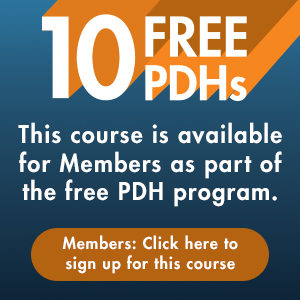
View Important Policies and System Requirements for this course
INSTRUCTOR:
David T. Williams, P.E., PH, CFM, BC.WRE, F.ASCE
Purpose and Background
Every day, professionals face decisions that have ethical implications. And while the safety of the organization and the public is every professional’s primary concern, time, personal, and resource pressures can often challenge these commitments. Taking a proactive approach to workplace ethics is the best course to mitigate these risks, avoid legal implications, and build a working atmosphere of integrity, trust, and purpose. In this webinar, we will discuss how to develop a strong and sustainable set of workplace ethics and guidelines designed to mitigate ethics creep, avoid legal implications, and build a solid, ethical foundation for a healthy workplace culture. We will explore common ethical topics and challenges and will detail the best practices when faced with ethically challenging situations. Additionally, we will discuss the difference between a Code of Conduct and a Code of Ethics, and finally, we will review several effective scenarios for academic, private practice and public officials.
Benefits and Learning Outcomes
Upon completion of this course, you will be able to:
- Explain the pitfalls of ethics creep (slowly eroding your ethics)
- Determine an ethical path in doing business with others
- Gain guidance in establishing personal and professional moral compass related to ethics
- Identify the difference between a code of conduct and a code of ethics
- Recognize the problems that are presented in ethical challenging situations
- Determine the course(s) of action for ethical dilemmas by asking certain questions posed in this presentation
Assessment of Learning Outcomes
Students' achievement of the learning outcomes will be assessed via a short post-assessment (true-false, multiple choice and fill in the blank questions).
Who Should Attend?
- Project Managers
- Company Principals
- Staff professionals
- Professors (assistant to full)
- Human Resources professionals
- Engineers and Scientists
- Technicians
- Academic professionals
Outline
- Philosophy on Teaching Professional Conduct and Ethics
- Code of Conduct / Ethics Definitions
- An Acronym to Prod your Conscience! P.L.U.S.
- Code of Ethics: The American Society of Civil Engineers
- Maricopa County Code of Ethics: (Ethics Handbook)
- Scenarios
How to Earn your CEUs/PDHs
This online course is worth .2 CEUs/2 PDHs. To receive your certificate of completion, you will need to complete a short on-line post-test and receive a passing score of 70% or higher within 365 days of the course purchase.

